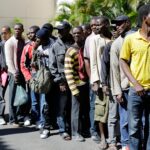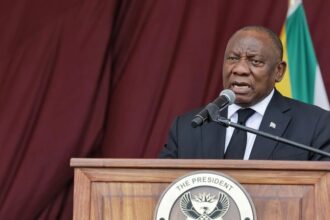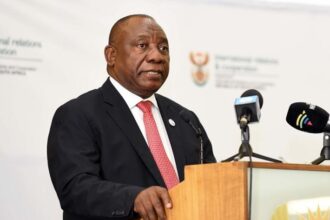The Congress of South African Trade Unions (Cosatu) has dismissed Afriforum and Solidarity’s legal challenge to the Basic Education Laws Amendment (BELA) Act as baseless and highly unlikely to succeed.
This follows Afriforum’s letter of demand to President Cyril Ramaphosa and Basic Education Minister Siviwe Gwarube, where they described the Act as irrational and unconstitutional. Afriforum and Solidarity threatened to initiate court proceedings if the government did not address their concerns within 10 days.
Cosatu, however, remains unshaken, asserting that the BELA Act is constitutionally sound and a progressive step in transforming South Africa’s education system.
Cosatu’s National Spokesperson Weighs In
Zanele Sabela, Cosatu’s national spokesperson, expressed confidence that any court challenge by Afriforum would fail.
“Cosatu dares Afriforum to take legal action because we are certain it has less than zero chance of succeeding,” said Sabela. “A court ruling will ensure this matter is finalised once and for all, putting an end to theatrics that distract from the Act’s full implementation.”
She further encouraged Afriforum to focus on constructive participation in drafting the Act’s regulations rather than relying on press conferences and fundraising campaigns.
Afriforum’s Response: A Two-Pronged Approach
Afriforum CEO Kallie Kriel rebutted Cosatu’s claims, maintaining that the organisation has a strong case. He argued that the Basic Education Minister herself acknowledged that certain sections of the Act cannot be implemented without proper norms and standards.
“The fact that the minister made a recommendation to the president that certain sections of the Act cannot be implemented shows irrationality,” said Kriel.
Afriforum plans to pursue a dual strategy of legal action while also engaging in the regulatory drafting process.
Cosatu Defends the BELA Act
According to Cosatu, the BELA Act is a transformative and inclusive law designed to address historical inequalities in South Africa’s education system. The Act ensures learners’ rights to education in their mother tongue while promoting diversity and inclusivity.
Key provisions of the Act include granting school governing bodies the authority to draft admissions and language policies under provincial oversight to prevent discrimination.
Sabela refuted claims by Afriforum and Solidarity that the Act undermines Afrikaans, clarifying that it protects and promotes all 12 official languages.
“At its core, the Act aims to transform our education system for the better, particularly for the historically excluded majority,” she stated.
Afriforum Accused of Misrepresentation
Cosatu also accused Afriforum and Solidarity of misrepresenting the objectives of the BELA Act, particularly regarding language rights. Sabela referenced a supposed agreement between Afriforum and the Education Minister that cannot override GNU resolutions.
“Cosatu is more than confident that the BELA Act is constitutionally sound and that any attempt to challenge it in court will fall flat,” Sabela concluded.
Call for Constructive Engagement
Cosatu urged Afriforum to shift from opposition to constructive dialogue to safeguard the rights of all learners. The organisation reiterated that the BELA Act represents a vital step toward equitable education in South Africa.











